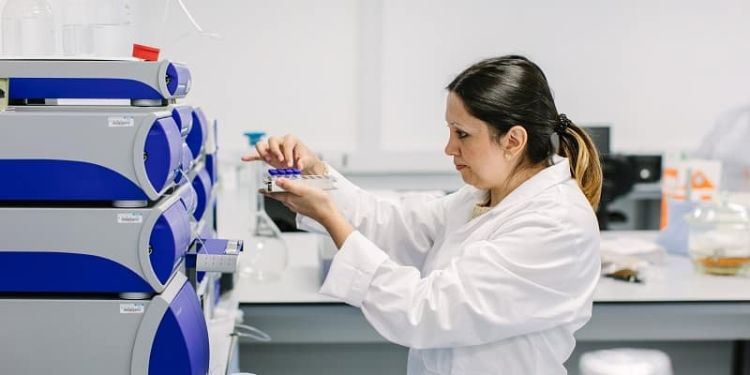Functional biopolymers for food and health

Our research investigates the entire value-added chain for functional biopolymers (polysaccharides, proteins and polynucleotides), from their extraction, purification, chemical and enzymatic modification, and full structural characterisation, to the development of novel structures in foods, cosmetics, as well as advanced biomaterials for therapeutics and biosensing devices.
Many of these biopolymers occur in food processing waste streams, hence, we are highly interested in collaborating closely with the food and biotech industry.
These materials play many roles in foods, and the clarification of the relationship between their structural aspects and their biological functions is one of the major drivers of our research.
We are investigating how biopolymers can be used as building blocks of high-value bioinspired “soft” materials that harness their self-assembling capacity to engineer emulsified oil droplets, multilayer systems, hydrogel networks, nano and micro fibres.
These structures can shuttle and deliver nutrients, bioactive compounds and probiotics in the gut; their properties can also be tweaked to prevent the digestibility of fat or to replace saliva in older people.
Biopolymers also comprise dietary fibre and underpin its prominent role in health.
They mediate mouthfeel, lubrication, intestinal motility, and bile salts recycling, and serve as fermentable substrates for the microbiota (i.e. as prebiotics), among other functions that are yet to be fully understood. Our aim is to create a blueprint to conceive and design novel functional foods.
We are also interested in the use of biopolymers as macromolecular scaffolds or supports of metallic nanoparticles for the development of sensitive, cost-effective and high-throughput bio-sensing devices that can detect biomarkers, food contaminants and pathogenic microorganisms in tissues, physiological fluids and foods.
The occurrence of biopolymers in living organisms impacts a myriad of cellular functions, from nucleic acid processing to the cell cycle and cellular differentiation.
Nucleic acids are a specific class of functional biopolymers with unique self-assembling properties, which allow the formation of molecular nanostructures with precise geometric shape and stoichiometric composition.
In this area, we are interested in studying how the chemical reactivity of enzymes or molecular probes such as DNA, RNA and peptides can be controlled, to exhibit specific components of biomolecular complexity for applications in synthetic biology and functional foods.
Further information
View all members of our research group, research projects and publications.
PhD projects
We have opportunities for prospective postgraduate researchers. Find out more.

